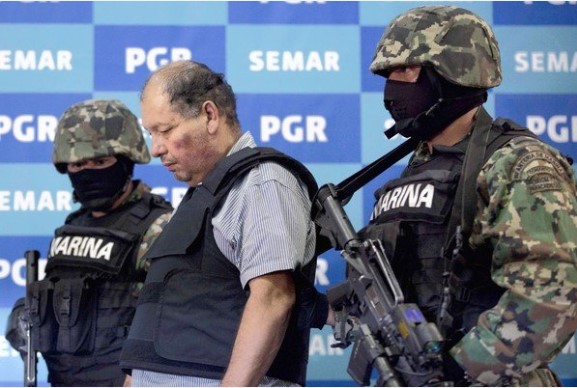Do you think the U.S. should assist in the drug war down in Mexico? As we all read in the news, this bloody conflict has been spilling across our borders for a very long time now. The latest and greatest idea to curve this problem is more assistance to the Mexican military.
The Pentagon is stepping up aid for Mexico’s bloody drug war with a new U.S.-based special operations headquarters to teach Mexican security forces how to hunt drug cartels the same way special operations teams hunt al-Qaida, according to documents and interviews with multiple U.S. officials.
Such assistance could help newly elected Mexican President Enrique Pena Nieto establish a military force to focus on drug criminal networks that have terrorized Mexico’s northern states and threatened the Southwest border. Mexican officials say warring drug gangs have killed at least 70,000 people between 2006 and 2012.
Based at the U.S. Northern Command in Colorado, Special Operations Command-North will build on a commando program that has brought Mexican military, intelligence and law enforcement officials to study U.S. counterterrorist operations from the U.S. to the war zones, to show them how special operations troops built an interagency network to target al-Qaida mastermind Osama bin Laden and his followers.
The special operations team within Northcom will be turned into a new headquarters, led by a general instead of a lieutenant colonel, and established in a Dec. 31 memo signed by Defense Secretary Leon Panetta. That move gives the group more autonomy and the number of people could eventually triple from 30 to 150, meaning the headquarters could expand its training missions with the Mexicans, even though no new money is being assigned to the mission.
The special operations program has already helped Mexican officials set up their own intelligence center in Mexico City to target criminal networks, patterned after similar centers in war zones built to target al-Qaida in Afghanistan and Iraq, two current U.S. officials said.
Mexican and U.S. military officials played down the change, and it’s unclear whether the Mexican government will agree to boost its training.
“We are merely placing a component commander in charge of things we are already doing,” said Northcom spokesman Navy Capt. Jeff Davis in a written statement.
Mexico’s Foreign Affairs Department emailed a statement saying it had been briefed on the changes, and had no further comment
The creation of the new command marks another expansion of Adm. Bill McRaven’s special operations empire, as he seeks to migrate special operators from their decade of service in war zones in Iraq and Afghanistan to new missions, even as the rest of the military fights post-war contraction and multi-billion-dollar budget cuts.
The new headquarters will also coordinate special operations troops when needed for domestic roles like rescuing survivors after a natural disaster, or helping the U.S. Coast Guard strike ships carrying suspect cargo just outside U.S. territorial waters, according to multiple current and former U.S. officials briefed on the mission. They spoke on condition of anonymity because the Pentagon has not formally announced the new headquarters.
The initial document petitioning Panetta for the command stresses the command’s role in military-to-military cooperation with Mexico. The document was signed in September 2012 by McRaven and Northcom commander Gen. Charles Jacoby.
Northcom’s current special operations training missions are an outgrowth of the Merida Initiative that was formalized in 2008, to provide extensive military assistance to Mexico. The extra special operations staff, including both troops and civilians, will help coordinate more missions as Mexico requests them, current and former officials said.
Pena Nieto is likely to welcome the continued training to help him build and coordinate the forces he needs to reduce drug violence, according to Rand Corp.’s Dr. Agnes Gereben Schaefer.
“He has talked about setting up a paramilitary force…made up of former military and police forces, which he has described as more surgical,” than the current campaign by Mexican army and police, Schaefer said. He would dispatch the force into towns that have been overrun by drug violence, where police don’t have the numbers to fight it, she said.
Read more at the Washington Post.


Leave a Reply
You must be logged in to post a comment.